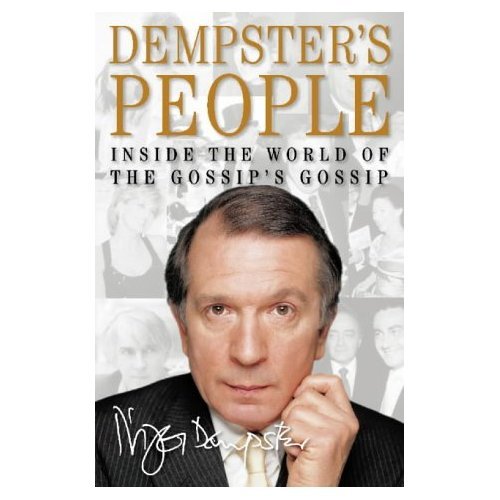His critics called him vain, snobbish, jumped-up and vicious – all true – but Nigel Dempster was also generous (he felt uncomfortable if anyone else paid for lunch); charming (displaying exaggerated and affected old-world manners which made women redden with appreciation) and exceptionally funny (with a theatrical sense of timing when recounting a juicy anecdote).
But The Greatest Living Englishman (as Auberon Waugh only half-jokingly dubbed him) was an incredibly complex character – his Daily Mail colleague and contemporary mischief-maker, Peter McKay, believed he was so beset by his “demons” that it was a wonder Dempster could ever sleep.
 As one who spent many years in the same office and accompanied him to endless parties I never really knew what made him tick, what motivated him to start, day after day, with a blank sheet upon which a column of seven or eight stories would have to be created. Perhaps the greatest clue was when he once described himself as “society’s moral policeman” – a ridiculous position for him to assume, given his own fallibilities – his aggression, bourgeois principles, excessive drinking and his unfaithfulness. But his swaggering sure got him noticed. Not that he seemed to enjoy it much in the end – “Nobody ever thanks you for doing a job like this,’ He once complained. “All you ever get are complaints.”
As one who spent many years in the same office and accompanied him to endless parties I never really knew what made him tick, what motivated him to start, day after day, with a blank sheet upon which a column of seven or eight stories would have to be created. Perhaps the greatest clue was when he once described himself as “society’s moral policeman” – a ridiculous position for him to assume, given his own fallibilities – his aggression, bourgeois principles, excessive drinking and his unfaithfulness. But his swaggering sure got him noticed. Not that he seemed to enjoy it much in the end – “Nobody ever thanks you for doing a job like this,’ He once complained. “All you ever get are complaints.”
Adam Helliker was Nigel Dempster’s former deputy on the Mail and Mail on Sunday and is writing a biography of him.






Comments